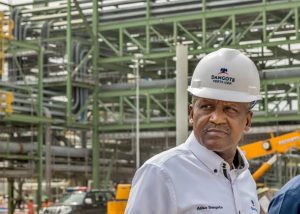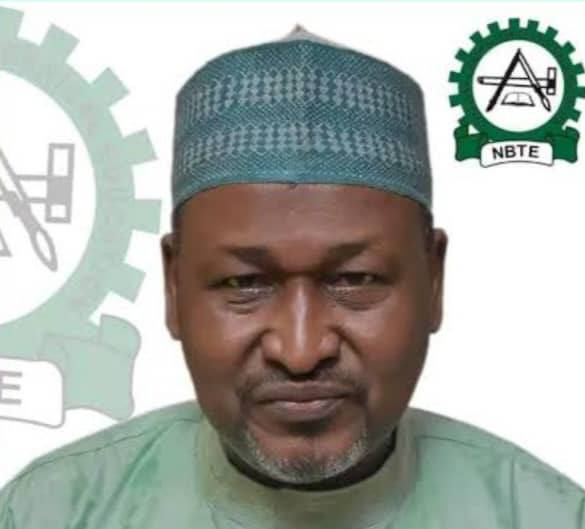How 63 cent per litre in Saudi is 40% cheaper compared to 67 cent per litre in Nigeria will be left for Africa’s richest man to explain.”
Read-for-yourself statistical details on how price tracking sites punctured the billionaire’s claim
Founder of Dangote Refinery, Alhaji Aliko Dangote, stirred controversy among oil industry statistics pundits when he declared that Premium Motor Spirit (PMS) popularly known as petrol is cheaper in Nigeria than in Saudi Arabia.
The billionaire, who said this in an interview with Bloomberg, claimed that the product is 40% cheaper in Nigeria than in the Kingdom of Saudi Arabia.
Oil Price Hits $75.69 Per Barrel
“For example, Saudis, the citizens believe that oil is our god-given gift and should not charge us for it. Government was selling it at a very low price. But today, as we speak, gasoline is about 40 percent cheaper in Nigeria than in Saudi Arabia, which I think does not make sense,” he declared.
A fact-check of this claim by Platforms Africa however showed that the statement by the Nigerian oil mogul is not correct. This reputable media group deployed data from Saudi Arabia, Nigeria and other reputable global statistics sites.
Why Tinubu Should Hike Nigeria’s Stake In Dangote Refinery From 7% To 45% – PENGASSAN
For instance price tracking sites like statista, and tradingeconomics showed that petrol was actually more expensive in Nigeria than in Saudi Arabia as of today, Wednesday, September 25, and the day the billionaire made the statement.
The True Picture
PMS in Saudi is sold for 2. 33 Saudi Riyal equivalent to 62 cents / litre according to tradingeconimics while the PMS Average price in Nigeria is N1100/litre that is about 67 cents/litre, using the present exchange rate of Naira to dollar.
In Russia, the price per litre of petrol is 64 cent while it goes for 65 cent in Indonesia.
How 63 cent per litre in Saudi is 40% cheaper compared to 67 cent per litre in Nigeria will be left for Africa’s richest man to explain.
Dangote Petrol N1,019 In Borno, N950/Litre In Lagos – NNPC
However, based on the verifiable figures by the petrol product price tracking institutions, Mr. Dangote is not correct.
PMS is more expensive in Nigeria than in Saudi as of today, Wednesday, September 25, 2024.
The Billionaire’s Interview
The Founder of the 650,000 barrels per day capacity refinery, Alhaji Aliko Dangote, who threw his full weight behind subsidy removal just nine days after his facility started production of petrol, said in an interview with Bloomberg that this is the right time for the federal government to stop petrol subsidy.

The product, which sold for N650 per litre at the NNPCL outlets before September 15, skyrocketed to as high as N1,010 per litre in same outlets on the day the private refinery began production. With the call for full subsidy removal, the prices could be as high as N1,800 per litre.
Oil Theft: Fact And Figures Of A National Emergency, By Adeola Yusuf
“I think it is the right time to (take away subsidy) because all countries have gotten rid of subsidy,” he said.
Statistics showed that the price of the product would go up to the market price which is higher than the subsidised price any time subsidy is removed, but Dangote maintained that what actually increases a product’s price is the subsidy.
Subsidy, according to him, is a sensitive issue, adding that once a country subsidises the product, people would increase the price.

To Dangote, subsidy would lead to the government “paying what they are not supposed to be paying.”
Dangote said petrol subsidy is not sustainable and the government cannot afford to keep subsidising.
10As/10: Platforms College Students Excel In BECE 2024
“Our price of gasoline is about 60 percent the price of our neighbouring countrries and we have porous borders, so it is not sustainable. Government cannot afford the amount of subsidies we are paying,” he said.
Speaking further on the viability of petrol subsidy, Dangote said it is the government’s decision to either continue with or halt the payments.
“We have a choice of exporting when we produce and we sell locally. We are a private company and it is true we have to make a profit,” he said.
We built something worth $20 billion, and definitely we have to make money.
“The removal of subsidy is totally dependent on the government, not on us.
“We cannot change the price but I think the government would have to give up something for something.”
Other Details
Beyond this, an earlier report by Bloomberg showed that contrary to claim by the billionaire on need for Nigeria to totally end petrol subsidy, Saudi Arabia spends $7,000 per person on energy subsidies, highest in G-20 economies.

The kingdom’s total spending on fuel subsidies soared over the past two years, hitting the highest among the Group of 20 economies on a per capita basis, the Bloomberg report has shown.
This, which came amid the harsh impact of petrol subsidy removal by the Bola Tinubu administration, which has cited the unsustainable nature of the decades-long payments, also punctured the claims by Alhaji Dangote that the Nigerian government has to hand over totally from subsidising petrol for its citizens
Fuel Subsidy Removal, Others Can Pose Risk To External Reserves – CBN
In 2022, Nigeria spent about $10 billion for the purpose.
The report published in 2023 indicated that Saudi Arabia spent almost $7,000 per person, equivalent to about 27 per cent of economic output, across both explicit and implicit energy subsidies, according to a paper published by the International Monetary Fund (IMF).
Fossil fuel subsidies soared globally since 2020 to $7 trillion last year as governments took measures to protect consumers and businesses from a spike in prices following Russia’s invasion of Ukraine, according to the IMF paper.

It estimated that cutting fossil fuel subsidies could help reduce carbon dioxide emissions, deaths from air pollution, and boost government revenues.
“Fossil fuels in most countries are priced incorrectly,” Simon Black, Antung Liu, Ian Parry and Nate Vernon wrote in the IMF working paper. “Unfortunately, current prices are routinely set at levels that do not adequately reflect environmental damages and, in some cases, not even supply costs,” they added.
China-which spent $2.2 trillion – was the biggest provider of subsidies in absolute terms, followed by the US and Russia, according to the IMF. Saudi Arabia spent a total of $253 billion on subsidies last year, it added.
The IMF has been urging Saudi Arabia to push ahead with measures to cut the government subsidy bill and take steps to protect the welfare of low-income households through increased and targeted social spending. The spending has made Saudi fuel one of the cheapest in the world.
In 2021, the government set a cap for the domestic cost of gasoline to soften the impact of higher living costs on citizens, just months before prices soared to over $100 a barrel.
In its Article IV Consultation, the IMF said that the kingdom’s work on subsidy reforms is “continuing unabated through planned step price increases that will lead to their elimination by 2030.”
Implicit subsidies, which the IMF defined as undercharging for the environmental cost of fossil fuel burning and lost tax revenue, made up the bulk of the global total. Explicit subsidies, or selling fuels as below supply costs, had a share of just 18 per cent.
Platforms Africa





